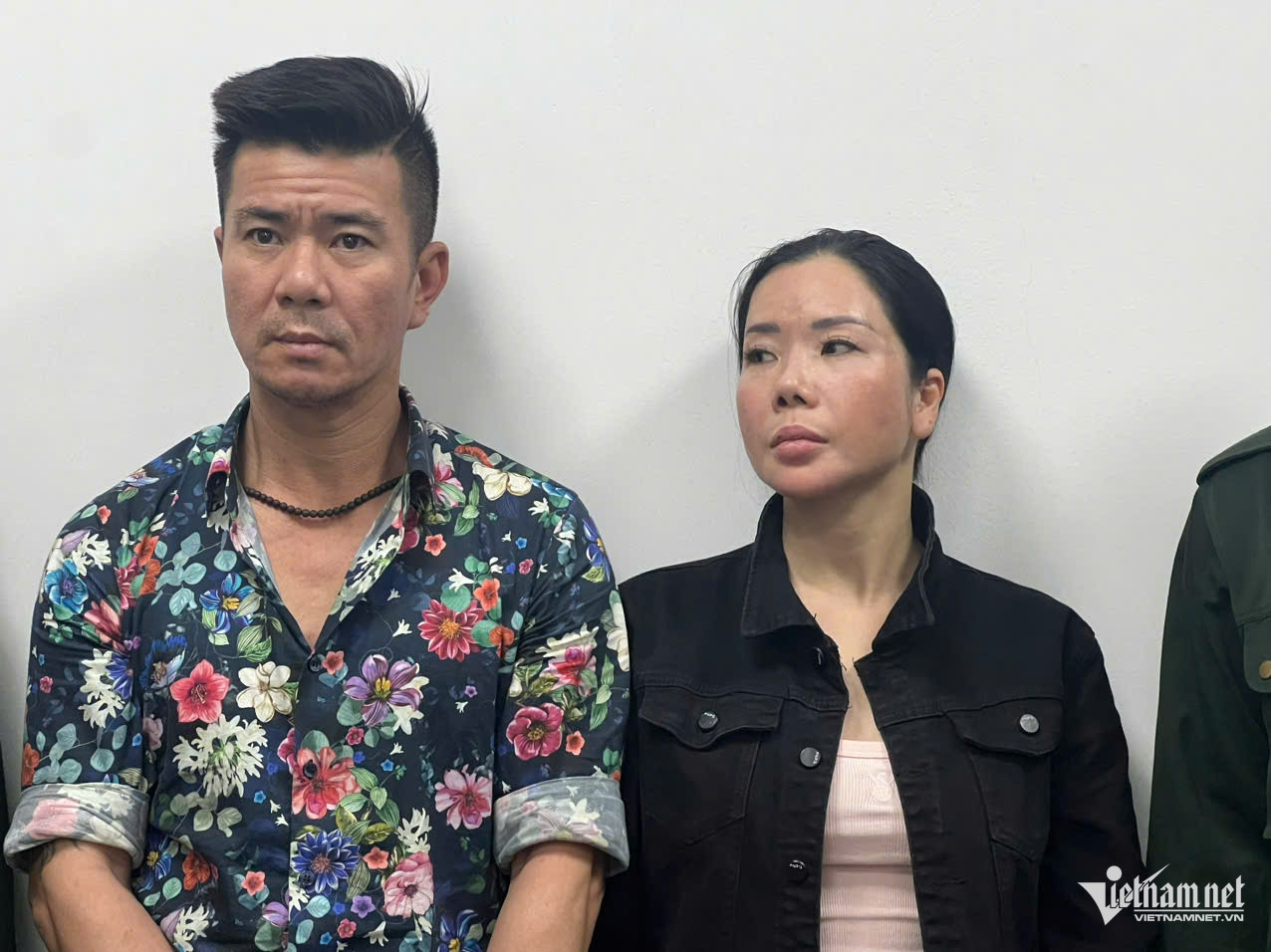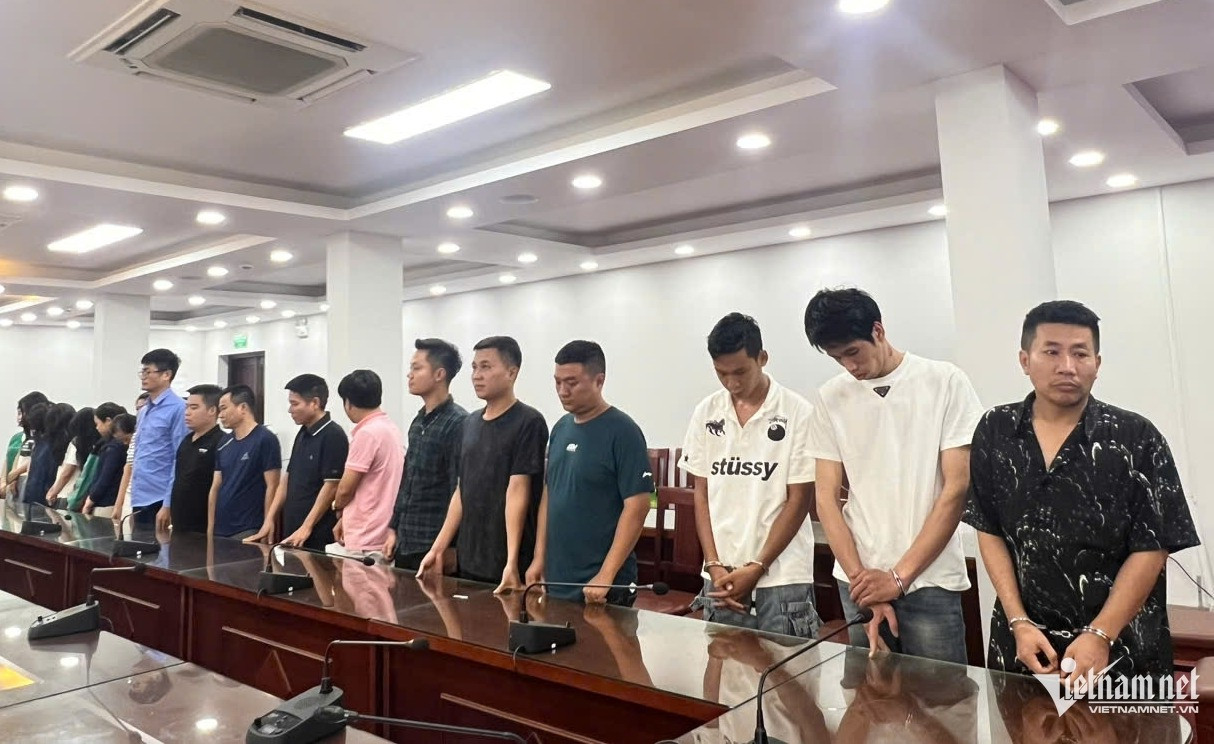According to official allegations, Mai Anh bribed leaders and staff of the Central Institute of Forensic Psychiatry to rent a VIP room equipped with air conditioning and sound systems to host parties and use narcotics inside the institution.

On June 23, Hanoi police announced they had indicted and imposed legal restrictions on 40 individuals, including 36 officials and employees of the Central Institute of Forensic Psychiatry and two inpatients undergoing mandatory psychiatric treatment.
Authorities also launched a criminal case under six serious charges, uncovering multiple legal violations related to psychiatric evaluations and treatment procedures.
Initial investigations revealed that between June 7 and 9, law enforcement raided 48 locations in Hanoi and Thanh Hoa, including the homes and workplaces of suspects. Seized evidence included a large quantity of professional documents, narcotics, and valuable assets worth tens of billions of VND (equivalent to hundreds of thousands of USD).
A shocking discovery emerged on June 8 during an unannounced inspection: 22 “patients” undergoing mandatory psychiatric treatment were absent from the institute. Fifteen of them are suspected of having obtained false mental illness diagnoses to evade criminal liability.
The police summoned a total of 90 individuals connected to the case, including 76 officials and staff from the institute = highlighting the scale and systematic nature of the violations.
Mai Anh: The “special patient” living like royalty in the institute

Mai Anh (46, residing in Thanh Xuan District, Hanoi) is at the heart of the scandal. A repeat offender, she has repeatedly evaded punishment by securing fraudulent psychiatric evaluations. Behind these falsified diagnoses lies a long-running network of bribery and collusion.
In 2016, Mai Anh was criminally charged with fraud and sent for compulsory psychiatric treatment. While at the institute, instead of rehabilitation, she colluded with staff to secure outside privileges and even committed new crimes, such as forging documents in 2020.
In 2023, alongside her husband Le Van Dong (b. 1978), she was again charged = this time with public disorder = and again admitted for compulsory treatment.
Unusually, during her stay, Mai Anh bribed institute officials to gain access to a VIP room = equipped with a private space, air conditioning, and a booming sound system used for parties and drug use inside the medical facility. She and her husband frequently left the facility for vacations and even invited staff on luxury trips.
The mastermind of a psychiatric fraud-for-hire ring

Beyond personal indulgences, Mai Anh served as a key middlewoman connecting families of criminal defendants to institute leaders to secure false psychiatric evaluations.
In some cases, she received billions of VND (tens of thousands of USD), which she then split with Tran Van Truong, former director of the Central Institute of Forensic Psychiatry. Truong, in turn, shared the money with members of the evaluation board, who would then manipulate medical records = adding symptoms or falsifying conditions = to justify rulings of “mental incapacity.”
Mai Anh also gathered insider information from the evaluation and planning departments, including detailed family backgrounds of upcoming cases, which she used to solicit bribes and broker fraudulent diagnoses.
Zero tolerance for all involved
Hanoi police described this as an extremely serious case with far-reaching consequences for justice and public trust in the legal system. The fact that dangerous criminals could avoid prosecution through fabricated psychiatric reports turned the medical facility into a safe haven for continued criminal activities.
The swift investigation and legal action have prevented further abuse and set a precedent for restoring discipline in forensic psychiatric evaluations = a system often exploited as a legal loophole.
Authorities confirmed that all individuals involved = patients, staff, or executives = will be strictly prosecuted to uphold the principle that no one is above the law, even within institutions once considered beyond judicial oversight.
The case is currently under expanded investigation.
Tien Dung